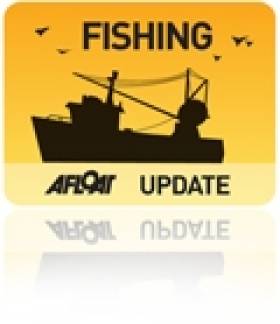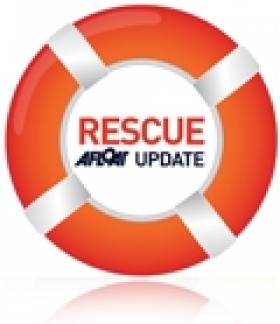Displaying items by tag: Personal Locator Beacons
Following Ocean Safety's involvement in supplying Mullion PFDs (Personal Flotation Devices) to the Scottish Fisherman's Federation, Ocean Safety is set to work with Mullion on a further large scale contract.
This involvement will see Ocean Safety assisting Mullion in fitting Kannad SOLO PLBs (Personal Locator Beacons) to the lifejackets given in a grant-funded scheme to the Irish Fisheries.
Mark Hart, Ocean Safety Sales Director, comments "This PFD and PLB combination is the first of its kind in the world and will see us supply up to 4,000 PLBs in a contract that will take up to five years. The combined approach between Ocean Safety, Mullion and BIM (Irish Sea Fisheries Board) has led to the creation of a perfectly suited solution that ensures optimum safety for fishermen."
This Enhanced Safety Training and Safety Equipment Purchasing scheme, introduced by the BIM is designed to ensure all registered fisherman are fully trained to use their PFD. On completion of the training all fishermen will receive a grant funded voucher, which entitles them to a special deal on a Mullion Compact PFD 150 fitted with the integrated PLB.
BIM Chief Executive Jason Whooley states "The success of this Scheme will be determined by the fishing industry. BIM are calling on every skipper and their crew to sign up for training now. We strongly believe that by twinning proper training with the appropriate equipment we can deliver on our remit to maximize safety training uptake and heighten awareness of the reality of safety at sea."
The Kannad Safelink Solo PLB is secured onto the bladder inside its own buoyancy pouch in a position within easy reach to activate manually and achieve optimum signal when the PFD is inflated.
The Mullion Compact 150 Mark 5 PFD with PLB has been developed by industry experts to create a product combination that is fully compliant to the ISO 12402 international standard.
The life of one fisherman in Northern Ireland has already been saved by his PFD, so it's with continued hope that with greater training, the introduction of similar grant-funded schemes and the combination of effective pieces of equipment like this, more lives can be saved.
ComReg launches Personal Locator Beacon (PLB) Registration Website
Personal Locator Beacons, or PLBs, are portable radio transmitters, which aid the Search & Rescue (SAR) emergency services in the detection and location of persons in distress. These devices operate in a similar manner to Emergency Position Indicating Radio Beacon (EPIRBs) onboard vessels and Emergency Locator Transmitters (ELTs) onboard aircraft, but are unique in that they for personal use and are not registered to a particular vessel or aircraft.
ELTs and EPIRBs have been in operation for several years are proven technologies, which have resulted in many successful search and rescues missions since their inception. More recently technological advances have enabled the construction of light-weight, hand-portable distress transmitters and hence the relatively recent emergence of PLBs onto the market.
In order to maximise the effectiveness of PLB usage, each PLB should be registered so that owner details as well as location details can be communicated to the emergency services which in many cases assists in speeding up rescue operations.
PLB owners can now register their PLB in Ireland using ComReg's new web portal. For more information on how to register your PLB please go to www. Comreg.ie or contact [email protected] or phone 01 804 9600.






























































